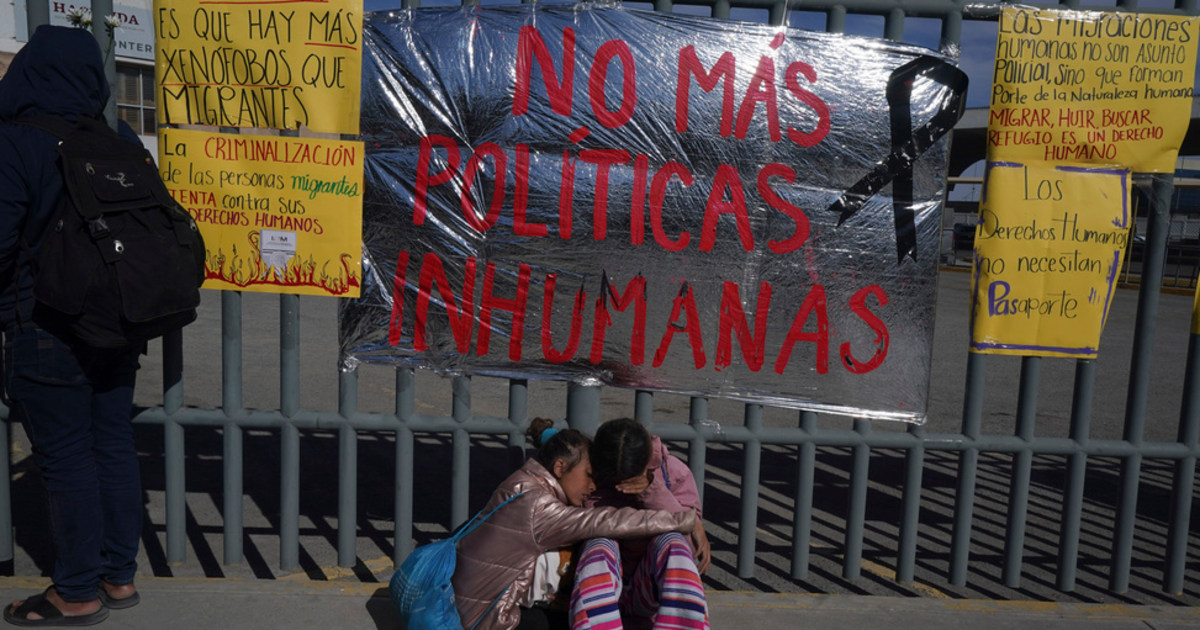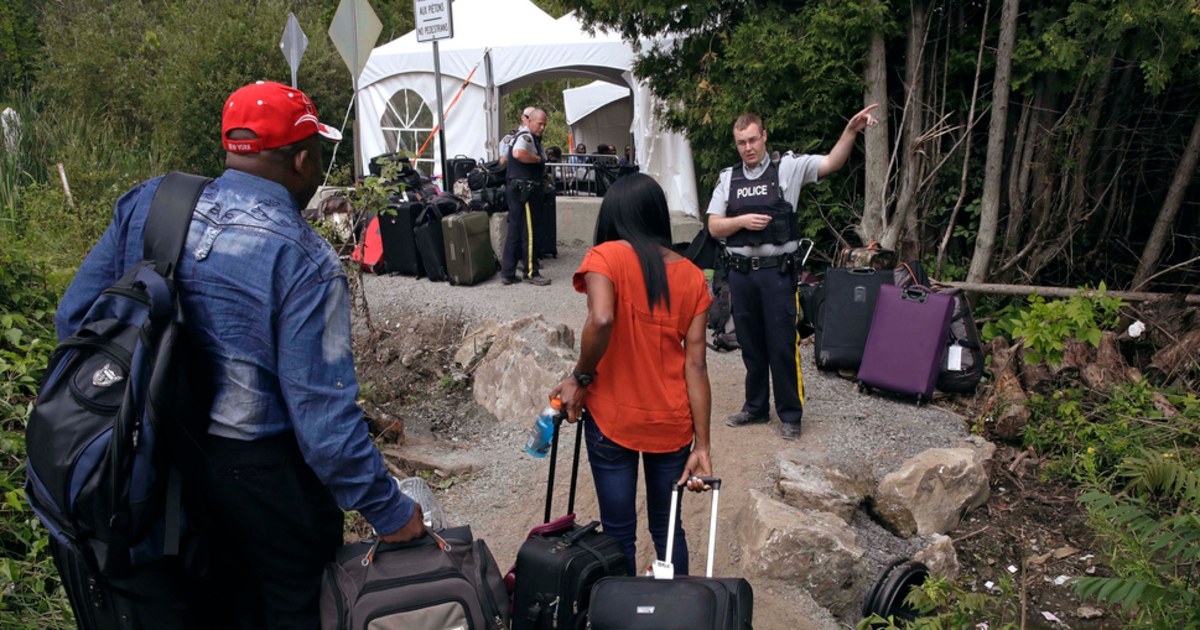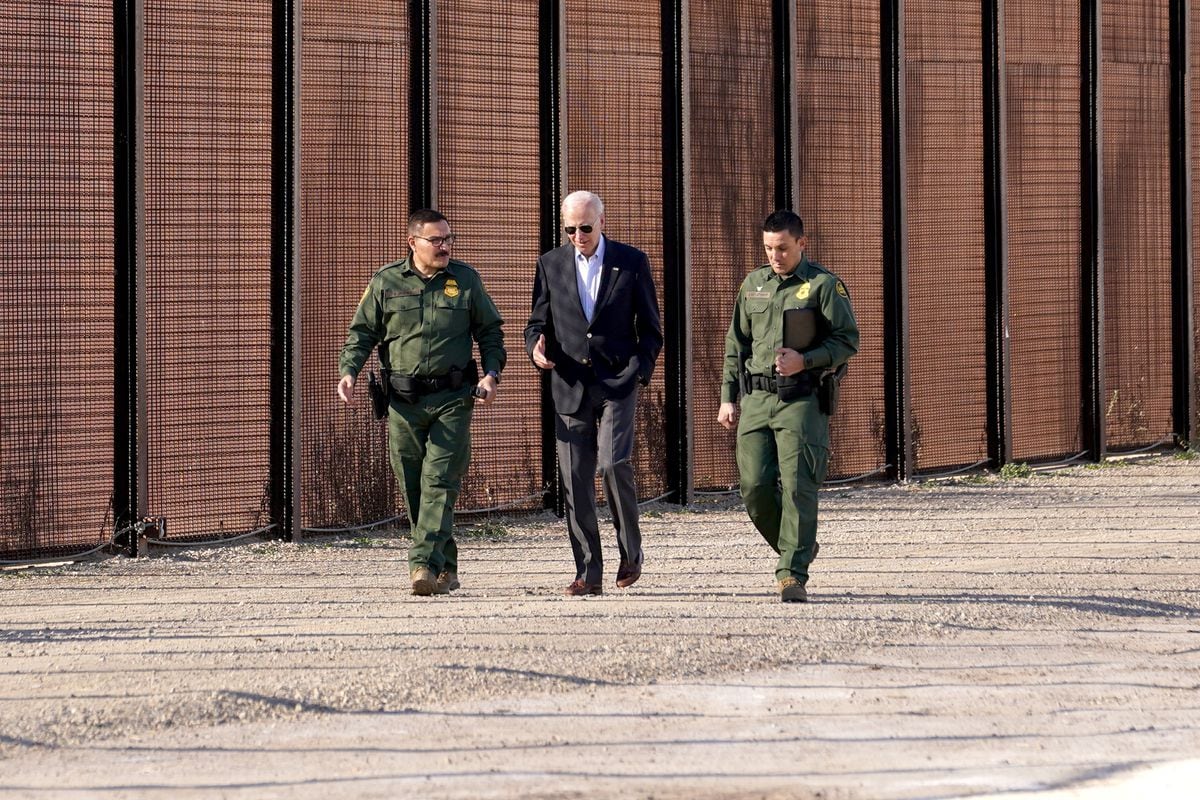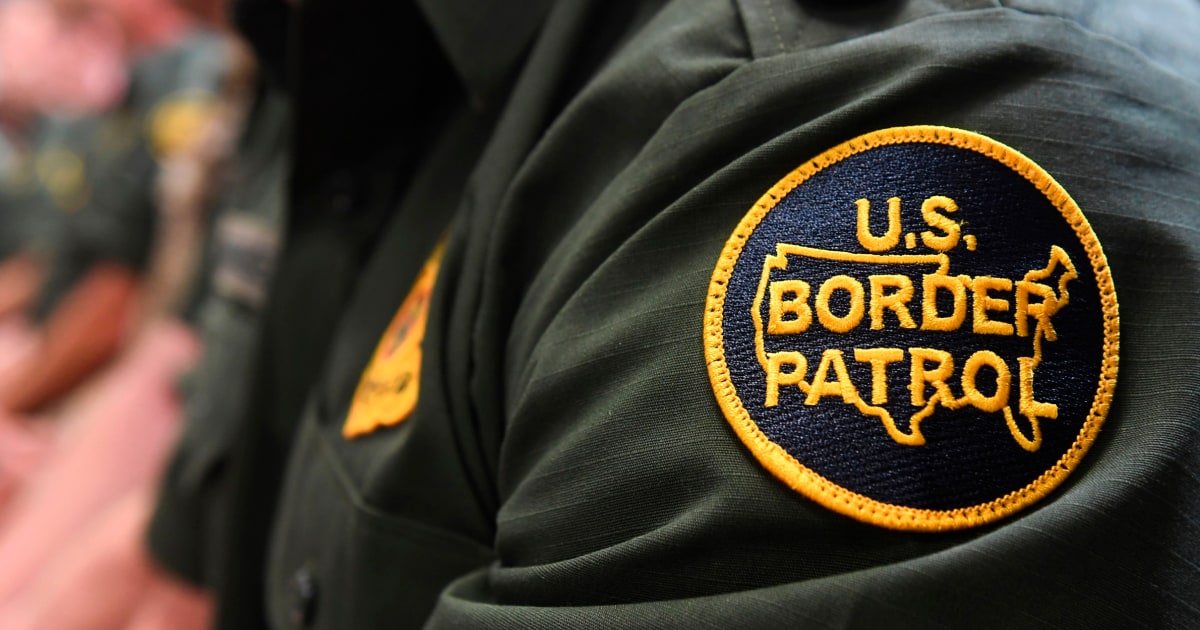HIDALGO, Texas.
- At the gates of an international bridge in Reynosa, Mexico, cries of defeat are seen.
Also migrants on the phone to notify their relatives that they are alive but that they have not succeeded.
They re-lacing the gnawed shoes and cautiously protecting their few documents.
Some claim to bring evidence of attempted murder, kidnapping and extortion.
But they complain that the United States did not show that evidence.
Hours after crossing the Rio Grande, the Border Patrol sent them back to Mexico.
There they are again, hours later.
Under the so-called Title 42, the United States is returning to Mexico almost immediately adult migrants and a good part of families with children.
The Donald Trump Administration began using this legal mechanism during the first weeks of the pandemic in 2020, claiming that the process of migrants was a danger to public health.
The new Joe Biden Administration says it will never apply it to unaccompanied minors, but it does continue to carry out these expedited expulsions to single adults and a significant portion of families with children.
In a call with reporters, a senior Customs and Border Protection (CBP) official said that most family units are returned, especially if they do not have children under the age of 7.
They pointed out that, on an average day at the end of March, 2 out of 3 families were returnees.
On the other hand, the Border Patrol Union, in its critical line against the Democratic leaders, alleged to the media that this was not the case: that the majority of families are released in the United States to continue their asylum cases, and they consider it a magnet so that more migrants arrive.
Noticias Telemundo spoke with a dozen returnees minutes after being expelled from the United States.
Most complain that the Border Patrol did not let them explain why they are seeking asylum, or show the evidence they say they have of attempted assassinations, kidnapping and extortion.
"They did not let me speak there in the hands of Immigration, I asked them to listen to me
,
"
said a Guatemalan mother who claimed to have a police report showing the threats against her in her country.
These are some of their stories:
Judith Rosivel, a Salvadoran migrant, in Mexico Damia Bonmatí
"They want to kill my son"
After hanging up the call, Judith Rosivel, a Salvadoran migrant, breaks down in tears.
He realizes the harshness of the situation.
Her brothers in the United States no longer have any more money to help her cross, and she is sitting on the floor with her 14-year-old son in Mexico.
They went through the river, stopped by the Border Patrol, but were returned to Mexico the next morning via an international bridge.
Her son accompanies her in silence and rests his head on his knees.
"I don't know what to do because the truth is, we're both very sick
,
" she
says while crying cuts her voice.
The minor has vomiting, diarrhea and fever;
she also has a fever.
“My children's father was killed five years ago because they asked him for rent money and we had no money.
We were poor.
And now they are after my son.
They want to kill my son, ”she explains excitedly.
He says that going back to El Salvador is too dangerous for them, but trying again in the United States is too complicated.
She did not expect the US authorities to send her back to Mexico, or that her reasons for fleeing El Salvador would not be heard.
"It was terrible in detention, very cold," he says.
Guatemalan migrant Mayda Caulio in Mexico, Damia Bonmatí
"I come with a bullet in the stomach"
Everything was too fast for Mayda Caulio.
Two weeks ago her husband was killed, and she was wounded by seven bullets.
There was no time for mourning or mourning.
She and six members of her family fled Guatemala, carrying little more than survival instincts.
They crossed the Rio Grande with an inflatable raft at night.
With much difficulty and help, he managed to get out of the raft.
"They killed my husband and they wanted to kill me," he told Noticias Telemundo videojournalist Fernando Espadín seconds after touching US soil.
They turned themselves in to the Border Patrol and thanked them for coming to the country to ask for asylum.
They thought they had succeeded.
Guatemalan woman flees violence to the US to ask for asylum but is deported
April 5, 202 105: 10
But just hours later, in a transfer, Mayda saw something: “When I saw that it said Texas, I said 'why are you taking me back to Mexico'.
'You're leaving', they told me.
'But aren't they going to support me? I said to them.
'Those are the laws' was the only thing they answered him ”
.
At the gates of the international bridge, already in Mexico, Mayda exclaims that she is scared.
Shamelessly, she admits her fear in front of her children: “I begged them that I needed help.
I begged them that I did not want to return to Guatemala, that we are at risk, that they want to kill us, that they tried to kill me, that I came shot, that I came with seven shots and a bullet in the stomach ... and they did not support me.
They returned us here to a place where we have neither where to sleep nor what to eat ”.
With no money, no water, no food, the family looks around.
Minutes later they bring them some bags of food that a Mexican brought to the disoriented migrants, and they eat.
Guatemalan Alejandra González and her two children, ages 9 and 15, in Mexico, Damia Bonmatí
"We have nowhere else to go"
Alejandra González and her two children, ages 9 and 15, take their first steps in Mexico.
His athletic shoes still hang with the tongue sticking out and without laces.
They carry the ties in a transparent bag from the United States Department of Homeland Security, along with their documents, cell phone and some belongings.
As they leave the bridge, several migrants bend down to put the shoelaces on, the clearest proof that they were in detention in the last hours.
This Guatemalan family is not sure what they will do, but the mother fears that they will have to undo the road.
The crossing, he says, was too dangerous.
The little money they had gotten they used to make the journey through Mexico.
Even the mother worked during the trip, while the children waited for her in motels.
"We were going with the hopes of being able to stay in that country, since our country is quite dangerous," he
explains.
“Twice they have tried to kidnap my children.
He had no need to travel, he had his own business.
But I had to get rid of things to try, but it couldn't. "
They crossed the night before and at midmorning the US authorities took them in a white bus to an international bridge.
There they indicated the exit, they crossed the middle of the bridge that indicates the change of country, and Mexican officials were waiting for them to take the data.
Some migrants said they realized they were being expelled upon reaching the border.
The migrant July Luján, Damia Bonmatí
"They told us we were in Mexico"
July Luján realized she was no longer in the United States when Mexican immigration officials met her in Tijuana.
She and her 5-year-old daughter had crossed the river four days earlier near Roma, Texas, and had been processed by Border Patrol under the Anzalduas International Bridge and then - judging from the description - in Donna, Texas.
In both places, the little girl was feeling worse: she vomited, had diarrhea, did not want to eat and went to the bathroom more than ten times a day.
Days after their arrest, they were put on a plane to take them to California and then on a bus.
He assures that they were told that they were being transported to "give the call to speak with our relatives."
"They didn't tell us anything about where they are going, what we were going to do," he says.
And suddenly they were in Tijuana.
The modus operandi fits in with others narrated by migrants.
Family units, especially with children under 7 years of age, who are flown to El Paso, Texas, or San Diego, California, to be expelled to Mexican cities where they have never been.
Noticias Telemundo asked if this policy responds to the refusal of the state of Tamaulipas to receive children under 7 years of age, and CBP only responded that it was a Mexican issue and not a United States issue.
July and her daughter are now waiting in a room of some acquaintances in Tijuana.
They both feel sick but, neither in Mexico nor in the United States, did they test for COVID when processing them.
“I have a headache, I don't smell or taste.
And I had a day with chills, my body hurt a lot.
And so is the girl, ”he says.
Their relatives ask them to try the crossing again.
The investment of the trip was too high for everyone.
You can contact the author of this report through the email
damia.bonmati@nbcuni.com


/cloudfront-eu-central-1.images.arcpublishing.com/prisa/YLOEMFF4HJC23HMOYLNKJIYY3A.jpg)


/cloudfront-eu-central-1.images.arcpublishing.com/prisa/CQSZWCMFFEISWLLJKA76I3TGKA.jpg)





/cloudfront-eu-central-1.images.arcpublishing.com/prisa/KMEYMJKESBAZBE4MRBAM4TGHIQ.jpg)



